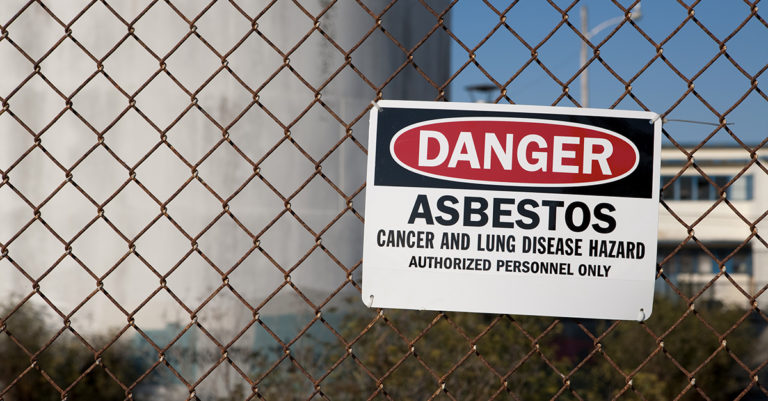The term “tort reform” crops up in the news regularly, and when it does, it’s often accompanied by controversy and confusion. For example, many people ask: What is a “tort”? Why reform it? Is tort reform a good thing for the American people?
The simple answer to that last question is “no.” Tort reform does not serve the general public. Here’s what you need to know.
What Is ‘Tort Reform’?
Tort reform refers to proposed changes to how the civil justice system works. Primarily focused on consumer litigation and personal injury claims, the movement aims to immunize companies from liability for harming or killing customers, patients, employees and other citizens.
Contrary to common belief, tort reform isn’t one single law or idea. It’s a group of them, each with their own approach to the same core agenda:
- Limit injured consumers’ ability to file claims.
- Limit injured consumers’ ability to obtain a jury trial.
- Reduce the amount of compensation victims can receive.
Lawmakers, corporate lobbyists and even the media have been known to support these measures, which form the basis of misleading bills like the “PROTECT Asbestos Victims Act.” Do not be fooled by the name. The PROTECT Act will not protect consumers; instead it will shield corporations from financial loss by making the asbestos claim-filing process much harder and more time-consuming for individuals and families affected by asbestos.
Why Is Tort Reform Bad?
In tort litigation, the party found to be at fault for harm must compensate the victim(s) enough to return them to as close to their original quality-of-life as possible – sometimes to the tune of millions of dollars. These multi-million-dollar verdicts in the news may at times seem excessive, but once the costs of medical expenses, loss of income and other financial burdens over a lifetime are accounted for, the figures start to seem more reasonable and just.
For those who back tort-reform efforts, verdicts and settlements have grown too large. “Frivolous” lawsuits allow greedy people to game the system, pro-tort-reformers claim.
In reality, tort reformers game the system by complaining consumers are too litigious. Under their logical framework, companies would be allowed to injure innocent people with minor consequences. And yet, strangely enough, some of the biggest proponents of tort reform are very litigious themselves.
What Is a ‘Tort Reform Hypocrite’?
The New York Law School Center for Justice & Democracy (CJ&D) defines a “tort reform hypocrite” as “someone who complains about people who file lawsuits and says compensation to injured people should be limited. Yet when they’ve been harmed, they go straight to court and sue for everything they can.”
CJ&D has published four “Hypocrites of Tort Reform” rankings of pro-reform but litigious individuals and companies, looking at factors like the rate of cases they bring, their involvement with lobbyists and their use of means like forced arbitration to deny people access to court.
The Center’s latest report ranks the top 30 hypocrites of 2018.
1.) Donald Trump
President Donald Trump holds the top position of CJ&D’s list for filing hundreds of suits, while at the same time blocking justice from others. He has long used forced arbitration clauses – as we saw with adult-film star Stormy Daniels, for example – to prevent anyone from taking him to court publicly.
As the Associated Press reported:
“In his businesses and presidential campaign, Trump requires nearly everyone to sign legally binding nondisclosure agreements prohibiting them from releasing any confidential or disparaging information about the real estate mogul, his family or his companies.”
Trump also “has broad discretion over what could constitute a breach of confidentiality.” In his short time in office, reads CJ&D’s report, Trump has signed laws undermining the rights of defrauded consumers, sexual harassment and discrimination survivors, and medical malpractice victims. But over the past three decades, he has filed more than 1,900 of his own civil cases, most recently against local governments for tax breaks.
2.) U.S. Chamber of Commerce Institute for Legal Reform (ILR)
Since its inception in 1998, the U.S. Chamber of Commerce’s ILR initiative has spent millions on federal lobbying against civil justice. In fact, having invested more than $22 million in 2017 alone, the Chamber is the top lobbying spender in the nation.
Bills the organization has lobbied for in the current Congress include H.R. 985, at the expense of asbestos victims, and H.R. 1215, which would strip the rights of people harmed by dangerous drugs and medical malpractice, among other measures.
On the other hand, the Chamber has filed over 1,100 lawsuits in the last decade, and freely admits to spending “half of our time trying to reduce the number of suits by class action lawyers and the other half of our time suing the hell out of the government,” in president Tom Donohue’s words.
3.) National Rifle Association (NRA)
Successfully passing the 2005 Protection of Lawful Commerce in Arms Act (PLCAA), which immunizes gun companies from cases of gun violence, was only the beginning for the NRA. The gun advocacy group continued to defend the PLCAA even after 20 children and 6 adults were killed in the 2012 Sandy Hook Elementary School shooting.
Meanwhile, the NRA forced a version of Florida’s Stand Your Ground “shoot first” law (written by the NRA) into 23 other states, denying crime victims their rights. The organization most recently passed a bill it calls the “Business Liability Protection Act” to allow employees to keep firearms in cars parked on employers’ property.
The NRA sues plenty themselves, of course. The most recent of many cases was brought against New York Governor Andrew Cuomo for “engaging in what it said was a ‘blacklisting campaign’ aimed at swaying banks and insurers to stop doing business with the gun advocacy group.”
Other Notable Tort-Reform Hypocrites, According to CJ&D
Also on the Tort Reform Hypocrites list are powerful entities like General Motors (no. 5), Uber (no. 7), Amazon (no. 9), Verizon (no. 10), State Farm (no. 13), U.S. Senator Ted Cruz (no. 19), former Alaska Governor Sarah Palin (no. 21) and Bayer Corporation (no. 26), whose hormone-free birth control device has triggered thousands of lawsuits and complaints.
The civil system is designed to solve disputes for individuals and companies alike, but when companies abuse their power to undermine civil rights and push their own self-serving agenda, the average American consumer is seriously hurt. That is not how justice should work.
Thankfully, victims can rely on the judiciary and legal counsel to settle disputes fairly. Tort reformers, if ever in a position to sue for a cause they lobbied against, may not feel so fortunate.
See CJ&D’s full report here.




